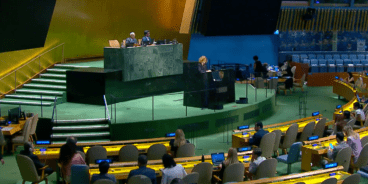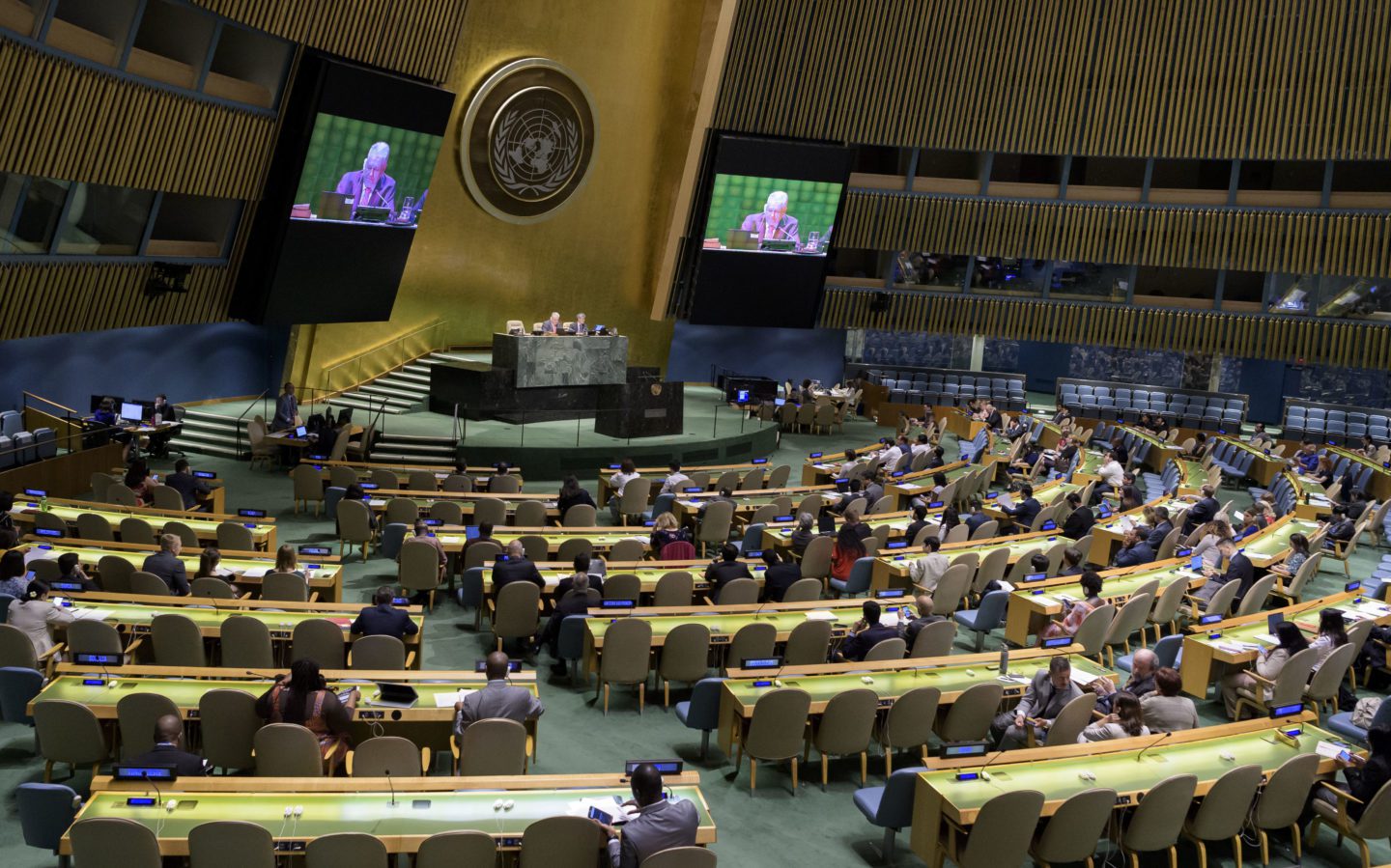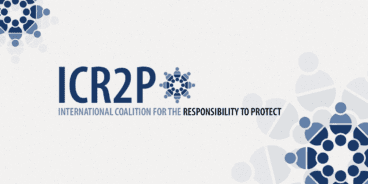
Statement by Monica Serrano on Behalf of the Global Centre for the Responsibility to Protect at the August 2010 UN General Assembly Informal Interactive Dialogue on the Responsibility to Protect
I would like to thank the PGA for giving the Global Centre for the Responsibility to Protect this extraordinary opportunity to again address this Assembly.
As we know the Responsibility to Protect is a simple but powerful principle that challenges the idea that the international community may witness mass atrocities, but cannot prevent them.
-
- Its origin should be traced back to terrible human tragedies and as such the R2P is intimately linked to human experience and moral imperatives.
- Rightly so, the Responsibility to Protect is thus driven and motivated by clear practical aspirations: the need to prevent and halt atrocity crimes.
- And if the pledge made by heads of state in 2005 to prevent and halt genocide, war crimes, crimes against humanity and ethnic cleansing is to have any meaning, the need for timely, effective, and impartial assessment and early warning cannot be underestimated.
We thus welcome the S-G’s report on Early warning, assessment and the R2P, we celebrate the initiative of the PGA to convene this important discussion, and we support the strengthening of the capabilities of the United Nations for early warning and assessment.
-
- The ability to come to the assistance of states and societies under stress depends on the capacity to pick up the signs in the early hours, to detect and to accurately interpret the symptoms.
- While the capacity to recognise the opportunities for timely policy responses and to fine tune and calibrate possible courses of action and engagement, in turn depends on the ability to identify the patterns that are characteristic or indicative of these crimes.
- In other words, on the ability to read the risk factors and markers that collectively justify a diagnosis of such crimes.
- As the S-G’s report plainly states, hard lessons from the past, the accumulation of never again moments, exposed significant institutional weakness that demand urgent attention.
Whether at the point of collecting, managing, assessing and bringing to the fore relevant information. Or at the level of coordination, making sure that each department and agency responds as a part and parcel of the same whole. As the cases of Rwanda and Srebrenica tragically illustrated, the failures of the UN to take immediate action and to halt mass killings against civilians seriously undermined its credibility.
-
- We acknowledge ongoing efforts within the UN to address such gaps, but we also concur with the S-G’s view that the diagnosis of “gross, widespread, systematic, violent and, most often, rapidly escalating abuse of human rights” requires a dedicated template [that assesses situations thorough the “provisions and intent of paragraphs 138, 139 and 140 of the 2005 WSO”]
- And we, of course, welcome the initiative of the S-G to enrich UN assessment and decisions concerning the R2P with “local knowledge and perspectives”
o Let us not forget that at the height of the crisis in Rwanda it was the vital information provided by human rights organisations that enabled the brave voices of some elected members to speak on behalf of the victims in the Security Council
The institutionalisation of the collaboration between the SAPG and the SAR2P, together with their envisaged joint convening authority, promises to enhance the capacity of the UN to “anticipate, prevent and respond to crises related to the R2P”
As we all know, early warning and assessment on its own is unlikely to result in “early or effective action”, but by bringing the relevant information to the fore, it can help mobilise eloquent voices, forcing us all to face how serious the consequences of inaction can be, and thus compel relevant actors to respond.
Mistakes can only go on if we allow things to just carry on; we can do better than that and we must
Related Content


